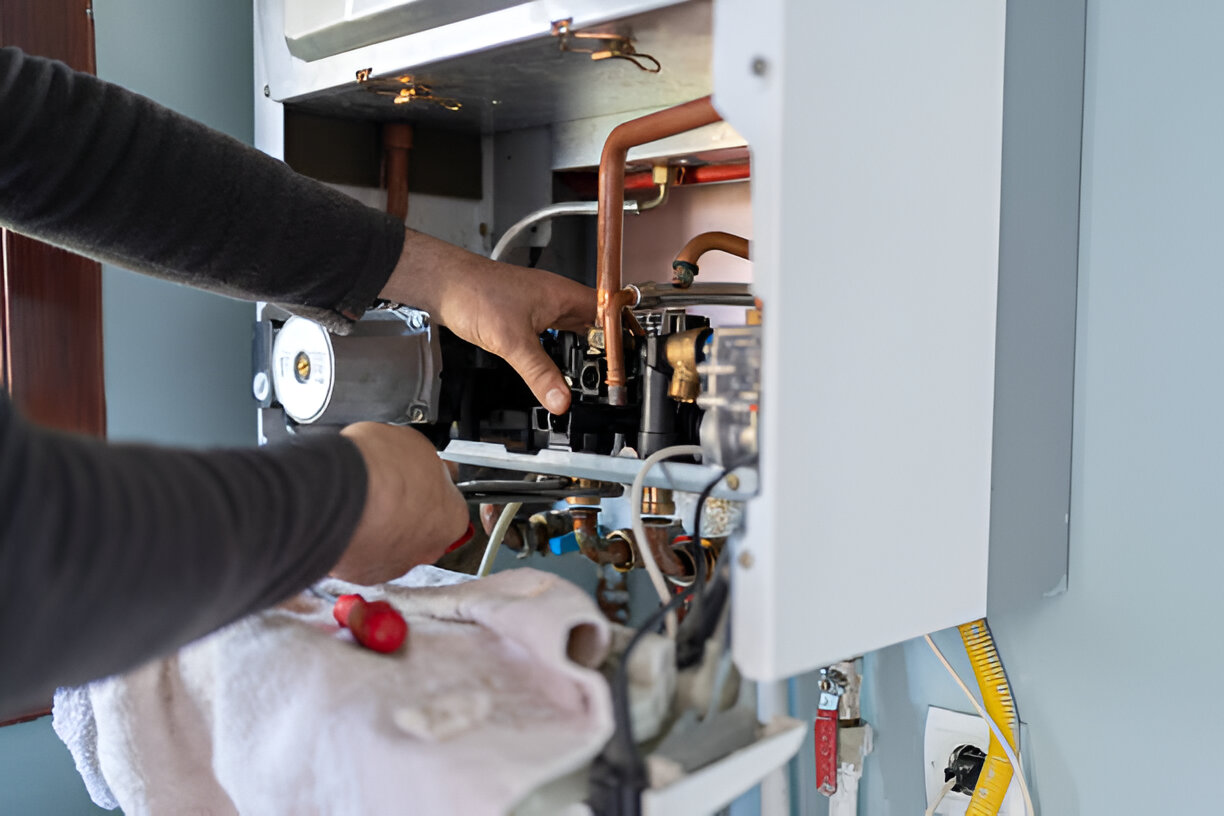
Furnace Tune-Up in Elizabethtown, PA
A regular furnace tune-up is the single most effective preventive step you can take to keep your home warm, safe, and efficient through Elizabethtown’s cold winters. A professional tune-up addresses common causes of breakdowns, restores proper combustion and airflow, and helps your heating system run more efficiently — reducing energy use and preventing unexpected failures on the coldest nights.
Why a furnace tune-up matters for Elizabethtown homes
Elizabethtown and the surrounding Lancaster County experience chilly winters and wide seasonal swings. Those conditions place extra demand on furnaces and can expose issues that develop slowly over time: blocked vents, worn controls, or minor fuel-delivery problems that become major failures when temperatures drop. Older homes common in the area may also have aging ductwork or legacy equipment that benefits especially from seasonal inspection and calibration.
Primary local benefits of an annual tune-up:
- Improved efficiency — a properly adjusted furnace uses less fuel and lowers monthly heating costs.
- Greater reliability — routine maintenance reduces the chance of mid-winter breakdowns.
- Safer operation — checks for cracks, leaks, and faulty safety controls reduce carbon monoxide and fire risks.
- Longer equipment life — cleaning and lubrication decrease wear and extend service life.
- Better indoor comfort and air quality — optimized airflow and clean components lead to more even heat and fewer airborne contaminants.
What a professional furnace tune-up includes
A comprehensive furnace tune-up covers inspection, cleaning, testing, calibration, and basic repairs. Typical items included are:
- Visual inspection of the furnace cabinet, burners, and surrounding area
- Cleaning of burners, flame sensor, and ignition components
- Testing and adjustment of ignition and safety controls (limit switches, rollout switches)
- Inspection of the heat exchanger for cracks, corrosion, or stress points
- Combustion check and flue inspection to ensure proper venting and safe exhaust
- Fuel connection inspection (gas/propane lines) for leaks and secure fittings
- Blower motor and fan cleaning, lubrication, and belt check if applicable
- Air filter inspection and recommendation for replacement (or replacement if included in a plan)
- Duct and vent airflow check and basic static pressure measurement
- Thermostat calibration and airflow balancing suggestions
- Electrical checks: capacitors, fuses, wiring connections
- Carbon monoxide detector review and system safety verification
- Documentation of findings and recommendations for repairs or replacements
Each step is performed in plain language so you understand what was checked, what was cleaned or replaced, and why it matters for performance and safety.
Common furnace problems found during tune-ups in Elizabethtown
These are the issues most often uncovered during seasonal tune-ups in this region:
- Reduced airflow from clogged filters, dirty blowers, or partially closed vents
- Yellow or irregular burner flame indicating incomplete combustion or dirty burners
- Short-cycling caused by thermostat miscalibration, clogged filters, or overheating
- Corroded or cracked heat exchangers from long-term neglect or age
- Faulty ignition systems that cause delayed or failed starts
- Loose electrical connections and failing capacitors that can cause intermittent operation
- Fuel delivery issues: minor gas leaks, loose fittings, or improper pressure on propane systems
- Excessive dust and pollen buildup in ducts, affecting indoor air quality
Being proactive prevents these common problems from causing costly emergency repairs when you need heat most.
The tune-up process: what to expect during a visit
A thorough furnace tune-up typically follows these steps:
- Arrival and system history review — technician confirms model, age, and any past problems.
- Safety checks — visual inspection for obvious hazards, gas shutoff knowledge verified.
- System start-up and observation — technician runs the furnace to identify abnormal sounds, smells, or behavior.
- Cleaning and component servicing — burners, flame sensor, and blower cleaned; filters inspected.
- Calibration and testing — thermostat calibrated; ignition and safety controls tested.
- Combustion and venting check — flue and venting evaluated for proper draft and exhaust conditions.
- Fuel and electrical inspection — fuel line fittings and electrical connections checked for safety and reliability.
- Final adjustments and report — recommendations, efficiency observations, and next-service timeline documented.
Technicians will explain issues in accessible terms and prioritize repairs that affect safety and immediate reliability.
Expected outcomes after a professional furnace tune-up
After a complete tune-up, you can expect:
- Quieter operation with fewer unusual noises
- More even home temperatures and improved thermostat responsiveness
- Lower energy consumption and potentially reduced heating bills
- Reduced likelihood of breakdowns during peak heating demand
- Clear documentation of system condition, including early detection of parts approaching end of life
If the tune-up identifies safety concerns (e.g., a cracked heat exchanger or significant fuel leak), those will be highlighted as urgent with clear explanations of the risk.
Recommended frequency and timing
- Annual tune-up (recommended): At a minimum, schedule a tune-up once a year — ideally in early fall before the heating season begins. This timing ensures the system is ready for continuous winter operation.
- Older systems or high-use homes: Consider semiannual checks for equipment over 15 years old, homes with frequent use, or properties with known duct issues.
- Fuel-specific notes: Homes using propane or oil may need more frequent attention to fuel delivery components and combustion settings.
Regular tune-ups also help maintain warranty coverage for many manufacturers; consult your system documentation for required maintenance intervals.
How people typically arrange a tune-up
Homeowners in Elizabethtown commonly secure tune-ups in a few practical ways:
- Scheduling a pre-winter appointment through an online service scheduler provided by local HVAC providers
- Signing up for a seasonal maintenance plan that includes priority visits and filter replacement
- Calling a local HVAC service to book a routine inspection and to ask for available maintenance packages
Maintenance plans often include two visits per year (heating and cooling) and may cover filter swaps or discounts on repairs, providing a predictable schedule and documented service history.


Enjoy flexible financing options that make upgrading or repairing your HVAC system easy and budget-friendly.










